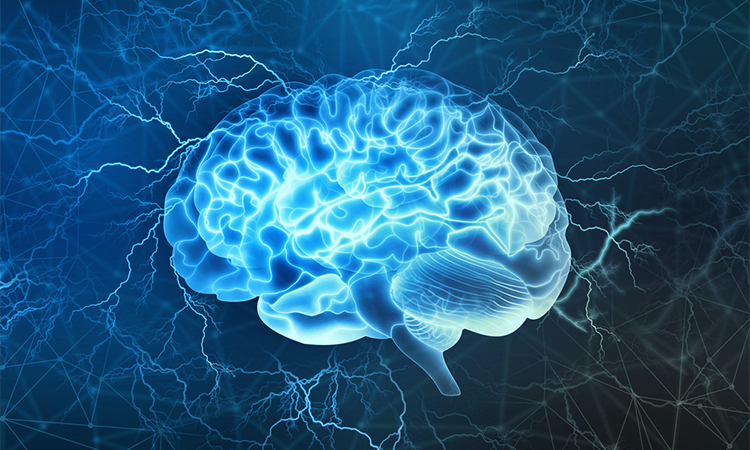Let’s talk neuroscience with Michelle Sidor at SFN
Posted: 29 November 2023 | Taylor Mixides (Drug Target Review) | No comments yet
Drug Target Review’s Taylor Mixides met with Dr Michelle Sidor, the Director of Neuroscience at Alchemab Therapeutics, and Dr Sifis Pediaditakis at the Society for Neuroscience event this November. This exclusive interview explores neuroscientific research and its pivotal role in steering the company toward future triumphs. Michelle highlights the dynamic landscape, emphasising the significance of staying abreast of research advancements and technological innovations. Navigating the therapeutic terrain, she articulates the company’s strategy to leverage the latest findings and technologies, aligning with the mission of delivering precision medicine promptly.


As the Director of Neuroscience Alchemab Therapeutics, how do you navigate neuroscientific research to propel the company’s future objectives?
Michelle: The key is keeping up-to-date on research advancements and technological innovations, while keeping an eye on the therapeutic landscape. By doing this, we ensure we are well-positioned to take advantage of the latest findings and technologies that can help propel our research and development efforts forward, with the ultimate goal of delivering the right medicine to the right patient as quickly as we can.
Can you spotlight key contributions and achievements during your two-year venture at Alchemab Therapeutics, shaping not just the present, but also future neuroscience initiatives?
Michelle: This has been a very active two years for everyone at Alchemab, and any achievements have been driven by the collective effort across the teams we have at Alchemab. We are truly pushing the boundaries of drug discovery with our unique patient-forward approach to target discovery. We focus on patients who are resilient to disease and conduct an unbiased search for protective autoantibodies in these patients that may underlie their resiliency. This is a key differentiation factor that sets Alchemab apart and is the engine that drives our target discovery process. We currently have multiple programs at various stages of development thanks to this approach, with an exciting lead program based on a truly novel target.
Traditional models tend to oversimplify biological systems, leading to inaccuracies and poor predictability in terms of how drugs will behave in humans.
Furthermore, our neuroscience capabilities have grown tremendously over these past two years, and it is a major goal of mine to ensure we are integrating innovation at every step of the process. One key innovation and achievement has been the integration of complex translatable in vitro systems and models into our discovery workflows. Our Associate Director of Neuroscience, Iosif Pediaditakis, has been responsible for delivering on this effort.
Sifis: Thank you, Michelle! At Alchemab, we’re acutely aware of the challenges in discovering new treatments for complex diseases, a problem often exacerbated by the limitations of current drug development models. Traditional models tend to oversimplify biological systems, leading to inaccuracies and poor predictability in terms of how drugs will behave in humans. Simply placing cells at the bottom of a well-plate creates an unnatural environment, triggering cellular responses that don’t accurately reflect human biology.
The ultimate goal is the patient. Integration of innovative technologies and approaches that span early discovery to the clinic will help ensure that we move as quickly as we can to bring the right medicine to the right patient at the right time.
To address this, Alchemab is pioneering an innovative approach. We’re utilising complex, human cell-based systems that leverage cutting-edge technologies such as stem cells and microphysiological systems (ie, organ-chips, such as Brain-Chips). These advanced tools enable us to construct in vitro cellular microenvironments that more closely mimic the in vivo conditions. This approach allows us to de-risk the drug development process, enabling more accurate testing of our therapeutics. Our goal is to accelerate the development of effective treatments by using a more targeted and efficient approach in order to address the urgent health needs of patients.
Given the dynamic nature of neuroscience, how do you integrate cutting edge technologies into Alchemab’s scientific framework and anticipate future advancements in the field?
Michelle: Simply walking around conferences, such as SFN, you can see the future of neuroscience slowly unfolding and emerging. There is a huge push for multiplexed biological readouts, coupled with more advanced translatable model systems that capture more of the complexity of human neurological diseases. And I have to say, this is an extremely exciting time to be in neuroscience. To be a successful company within this space, we really need to have our finger on the pulse. So, looking forward, predicting the next big advancement and being proactive and open enough to adopt innovative and progressive technologies, ensures that Alchemab is at the forefront of its industry.
In the ever-evolving pharmaceutical landscape, how does Alchemab Therapeutics balance innovative neuroscience research with a forward-looking approach to industry standards and ethical considerations?
Michelle: The ultimate goal is the patient. Integration of innovative technologies and approaches that span early discovery to the clinic will help ensure that we move as quickly as we can to bring the right medicine to the right patient at the right time. But we must be mindful to use innovation and integrate it when it makes sense to do so. Innovation for innovation’s sake can be counterproductive, and so finding the right balance is key.
About the authors


Director of Neuroscience, Alchemab Therapeutics
Dr Michelle M. Sidor is the Director of Neuroscience at Alchemab Therapeutics. She oversees preclinical neuroscience discovery efforts and leads a team of dedicated scientists committed to developing novel therapeutics for multiple neurological disorders. She brings to Alchemab 10 years of experience in neuroscience drug development at both large and small biotech companies. She has worked on multiple preclinical programs in psychiatry, neurodegeneration, and rare diseases that have successfully advanced to clinical testing. During her time at Alchemab, she has helped transform their preclinical discovery capabilities by adopting and integrating cutting-edge engineered microsystems that model the complexity of the human brain for translatable drug discovery efforts. Dr. Sidor received her BSc (Honours) from the University of Toronto and her PhD in neuroscience from McMaster University in Canada.


Associate Director of Neuroscience, Alchemab Therapeutics
Dr Pediaditakis serves as the Associate Director of Neuroscience at Alchemab Therapeutics, where he leads the development and integration of human cell-based systems into Alchemab’s discovery workflows. Prior to his current role, Dr Pediaditakis led the neuroscience team at Emulate Inc., where he specialised in Organ-Chip models for neurodegenerative diseases. A highlight of Dr Pediaditakis’ career is his groundbreaking research on the Human Brain-Chip, which was recognized by The Scientist magazine as one of the Top 10 Innovations of 2021.
Related organisations
Alchemab Therapeutics Ltd



